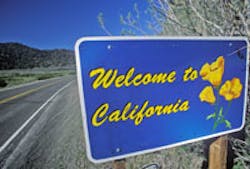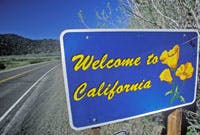Confused about CDHA? (So are we.) Here's what we know
Article updated May 12, 2016
Here’s what we know:
- For an undetermined amount of time, the American Dental Hygienists’ Association (ADHA) and the California Dental Hygienists’ Association (CDHA) quietly discussed the binding relationship (called a charter agreement) between the two associations.
- On March 18, the CDHA voted against the charter agreement. Despite the historic implications, only a very limited number of people in dental hygiene knew about it. The ADHA and CDHA kept any ongoing discussions between themselves.
- On April 25, the ADHA emailed a letter from the national association’s president, Jill Rethman, RDH, to members of the CDHA, encouraging dental hygienists to talk with their delegates about the issue.
- Rethman’s letter annoyed the CDHA. Two days later on April 27, the CDHA executive committee jointly signed and posted a letter on the association’s Facebook page, publicly announcing that the CDHA “terminated its charter relationship” with the ADHA.
- Almost immediately, the ADHA organized an online town hall meeting for May 24 to initiate a discussion about the charter agreement (see link below).
- Both organizations were relatiely quiet, and least publicly, for a while. Then, ADHA released a FAQ sheet to "to address . . . questions from CDHA members."
- On May 11, the CDHA posted a fact sheet to their Facebook page, indicating that they are "deeply concerned about the confusion ADHA is causing in the state of California."
Remember also that California has its own state board for dental hygienists—the Dental Hygiene Committee of California. The DHCC oversees the state’s licensure and exams for dental hygienists.
Essentially, think of the national and state dental hygiene associations as being your lobbyist. This includes strongly recommending protocols for ethics and dental treatment objectives among dental hygienists. Someone else from within the state government or local law enforcement, though, will be knocking on your door if you or an employer behaves in a professionally questionable way—not the trade association.
But, as your voice in helping shape policy for dental hygienists in the public arena, the state and national dental association should be accessible to you—always. (It certainly is beneficial, though, if you’re a member of the association when you try to obtain access.)
With that in mind, there are three upcoming opportunities for California hygienists to obtain a better understanding of what is happening in their state.
- The CDHA’s spring scientific session in Anaheim on May 13 is primarily a continuing education venue. But it’s a fairly safe bet that many of the state association’s officials will be there, particularly from the southern California area.
- The ADHA is hosting an online “town hall” on May 24 about the charter agreement with the CDHA. You can register here. Cathy Draper, RDH, the editor of the Journal of the California Dental Hygienists’ Association said, “The purpose of the town hall will be to address questions that anyone, general members, CDHA delegates, and members of the Board of Trustees may have in regards to the requirements of the charter agreement.
- The final decision about the charter agreement could be made at the CDHA House of Delegates meeting in Fresno on June 3-5. There will be a discussion, though, about the charter agreement before delegates act on the recommendation by the state association.
For the most current dental headlines, click here.
About the Author

Mark Hartley
Mark Hartley is the editor of RDH magazine and collaborates with Kristine Hodsdon on many of the articles for RDH eVillage, which also appear on DentistryIQ.com.

